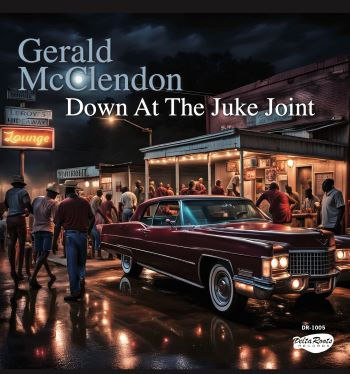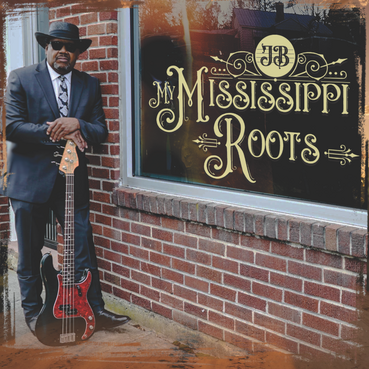Gerald McClendon — Down at the Juke Joint
- rozanski0
- Jun 24, 2024
- 3 min read

Come rain or shine, it’s typically storming in Gerald McClendon’s heart. And, thankfully so. Because, being an old-school soul man, that angst and ache manifests in beautifully bummed-out moments. Case in point: Imagine a rosy world where Otis Redding had better things to do than sit, in emotional crisis, on the dock of the bay. Anyone care for a cheery O.V. Wright? A contented James Carr?
The same certainly goes for Chicago’s McClendon, codenamed “the Soul Keeper.” His heart has been getting roughed up for years now; his throat has been paying a similar price by funneling all that hurt out and into a microphone. Like Let’s Have a Party (2021) and Can’t Nobody Stop Me Now (2020), Down at the Juke Joint offers no relief, instead thriving on slow burns that mandate digging down for the scratch—rather than the sugar—in his voice.
“It’s Too Late, She’s Gone” and “So Long” offer plenty of reason to dig, as regret and abandonment swirl about ever so melodically. The dramatic descent into “Only Time Will Tell” does not bode well for the relationship’s end result; yet apprehension never sounded so majestic as when revolving by degrees around a central, crystalline piano riff as McClendon keeps pulling on the refrain as if tugging at his own heartstrings. In a flash, 1960something sounds to have seemingly returned.
Producer/drummer/musical jack-of-all-trades Twist Turner sees that the session is flush with the genre’s necessary throwback amenities. A bank of horns stands at the ready. Twinkling Fender Rhodes? Check. Hammond organ? Double check. To add an extra stamp of hometown identity, McClendon gets briefly joined by two fellow Chicagoans on a track apiece: Mary Lane (scrappy West Side vocalist) is the one seconding Gerald’s calls for seeking (and swigging) relief “Down at the Juke Joint”; Maurice John Vaughn (versatile South Side guitarist; yes, maker of 1984’s Generic Blues Album) makes his presence known echoing the lyrical torment twisting through “House Ain’t a Home” by way of deep-blue fills and a perfectly writhing solo. Still, with a cold shrug of the shoulders and his most steely of tones, McClendon carries the weight in fessing up to having just been jilted, jolted and jettisoned.
But that’s what soul keepers do—and have been doing since the ’60s: They emotionally sacrifice themselves with grand heartbreak, so you don’t have to. Grand heartbreak like “Cryin’ Time Again,” another of love’s cold shots. Because it is tough enough getting through crying time, but now it is crying time—again. Yet McClendon’s voice is up to the task, valiantly going around and around on the wheel-of-misfortune as the band gently orbits a tolling piano and heap of worry. With one dark beauty of a song after the next, Down at the Juke Joint—to borrow that old soul phrase—pours water on a drowning man.
Then, 30some minutes into this exquisite discontent, the storm clouds clear, letting rays of sunshine sneak in temporarily, as the album draws to a close. “You’re So Fine,” “I’ll Be in Your Corner” and “You Make Me Happy” bond into an endearing suite that grows bright and brighter and brighter still. Sensing the sour turning to sweet, the resident saxophone joins the keyboards in coloring the mood with a lighter sense of purpose. Optimists may interpret the upbeat positivity as offering slivers of hope in a hardhearted state of circumstances. But for realists who know how Southern-styled deep-soul music works, these doting moments are no doubt setting up McClendon for the next hard fall that would manifest as his future, and what will be, eighth album. And, in doing so, maintaining that classic soul-man cycle of: love-agonize-repeat.
Label: Delta Roots
Release Date: 6/7/24
Artist Website: www.geraldmcclendon.com
Reviewed by Dennis Rozanski




Comments